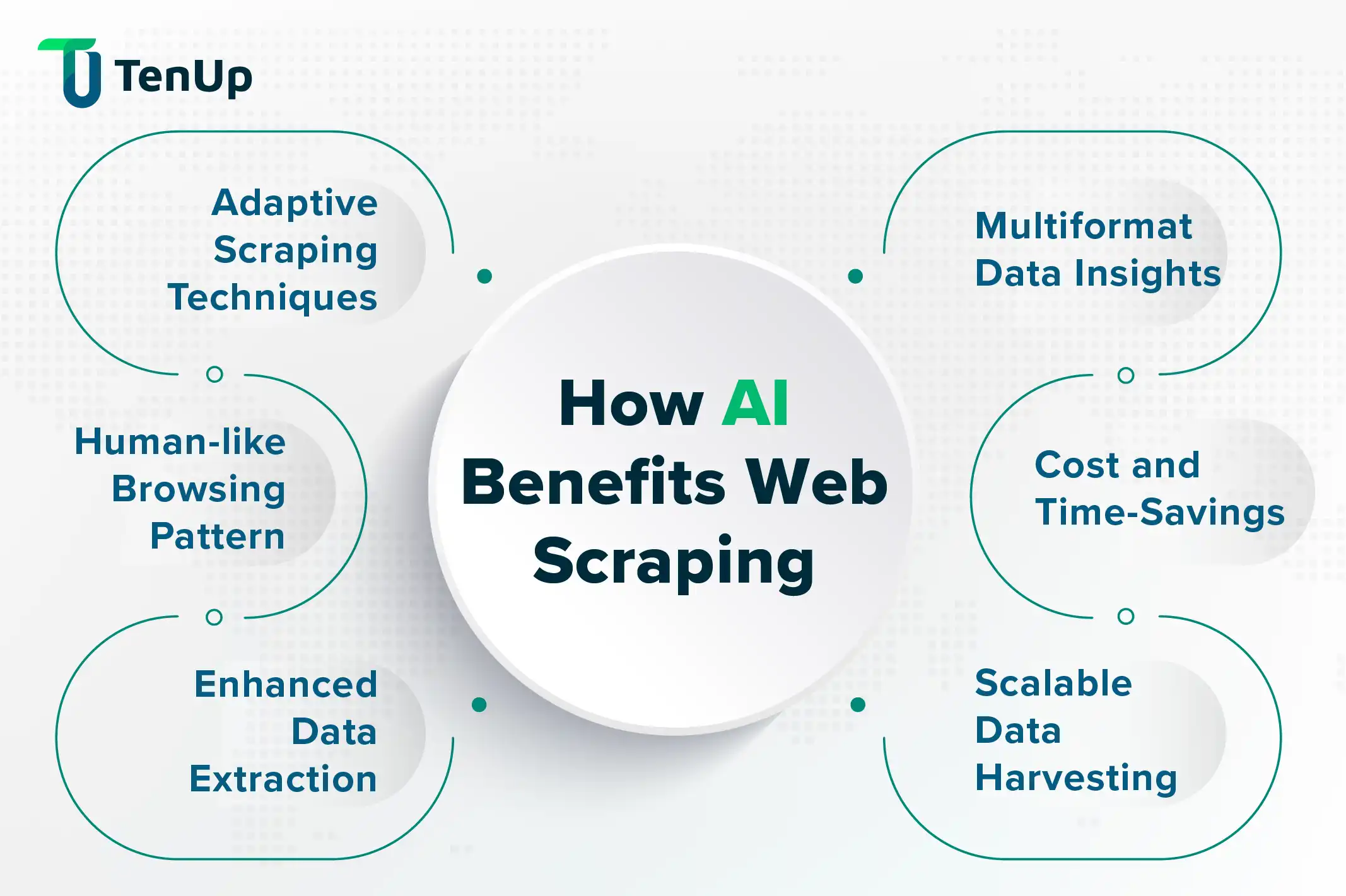The Role of Artificial Intelligence in Web Scraping: Unlocking the Potential

In the modern digital landscape, data is the driving force behind business decisions, research, and innovation. Web scraping has long been a go-to method for extracting this valuable data from websites, but the traditional methods of scraping have limitations, especially when dealing with complex, dynamic content. With the advent of Artificial Intelligence (AI), web scraping has entered a new era, unlocking a vast potential for more intelligent, efficient, and AI Powered Web Scraping scalable data collection. AI’s ability to enhance data extraction not only simplifies the scraping process but also ensures the quality, accuracy, and relevance of the data gathered, making it an indispensable tool for businesses, researchers, and developers alike.
AI plays a crucial role in overcoming the challenges posed by modern websites, which often feature dynamic content, JavaScript rendering, and complex structures. Traditional scraping tools rely on static rules that can easily break when website layouts change or content is dynamically loaded. However, AI-powered web scraping tools can adapt and evolve, using machine learning (ML) algorithms to recognize and process data even when it is displayed in new or unexpected formats. By leveraging NLP (natural language processing) and computer vision, AI can understand and extract content from websites that would be difficult or impossible for conventional scraping methods to handle, ensuring that users can gather relevant information from any website, regardless of complexity.
The integration of AI into web scraping also brings significant improvements in the quality of the data being harvested. Traditional scraping often results in vast amounts of unstructured and raw data that requires additional steps for cleaning, filtering, and organizing. AI-enhanced scraping tools, on the other hand, can automatically structure the extracted data, making it more usable right from the moment it is collected. Machine learning algorithms can categorize and tag data as it’s scraped, reducing the time and effort spent on post-processing. Furthermore, AI can analyze and contextualize the data, allowing businesses to gain deeper insights without having to rely on manual intervention. For example, AI can automatically detect patterns or trends within the data, offering valuable insights that go beyond the raw figures or facts.
Another key advantage of AI in web scraping is its ability to handle large-scale data extraction more efficiently. Traditional scraping often involves manually writing scripts and handling the extraction process on a small scale, but this can be a time-consuming and labor-intensive task when large datasets or numerous websites are involved. AI-powered scraping tools can automate and streamline this process, allowing businesses and developers to gather large volumes of data with minimal human intervention. This ability to scale data extraction not only saves time but also opens up new possibilities for businesses to collect information in real-time, ensuring they stay competitive in fast-paced industries like e-commerce, finance, and digital marketing.
AI also excels in bypassing the anti-scraping measures that websites implement to protect their data. Many websites use techniques such as CAPTCHAs, IP blocking, or rate-limiting to prevent automated scraping tools from accessing their content. AI-powered scraping tools can overcome these barriers by mimicking human behavior, rotating IP addresses, or using headless browsers to simulate real user interactions. These advanced strategies ensure that AI-driven scraping tools can access even the most protected data, making it possible to scrape a broader range of websites and collect information that was previously out of reach. This capability is particularly valuable for industries that need real-time data, such as financial markets or competitive analysis, where even the smallest advantage can lead to significant business outcomes.
The potential applications of AI in web scraping are vast, with businesses across various industries benefiting from smarter, more efficient data collection. In e-commerce, AI-powered scraping tools help businesses track competitors’ pricing, monitor stock availability, and gather market intelligence. In the financial sector, AI is used to scrape real-time market data, financial reports, and social media sentiment to inform investment strategies. Digital marketing teams utilize AI scraping tools to monitor brand mentions, track customer reviews, and analyze customer sentiment to improve marketing strategies. The possibilities extend beyond just business use, as researchers in academia, healthcare, and journalism are also leveraging AI-powered web scraping to gather up-to-date information from a wide variety of online sources. As AI technology continues to evolve, the potential of web scraping will only expand, empowering organizations to unlock even greater value from the data they collect.
In conclusion, the role of Artificial Intelligence in web scraping is transforming the way data is collected, processed, and analyzed. By overcoming the limitations of traditional scraping methods, AI enables more efficient, accurate, and scalable data extraction. Whether it’s handling dynamic web content, ensuring data quality, or bypassing anti-scraping defenses, AI is unlocking new possibilities for businesses and developers. As the technology continues to improve, AI-powered web scraping will continue to revolutionize industries by providing real-time insights and enabling data-driven decisions in an increasingly digital world. By embracing AI, organizations can harness the true power of web scraping and remain competitive in the data-driven economy.
Leave a Comment